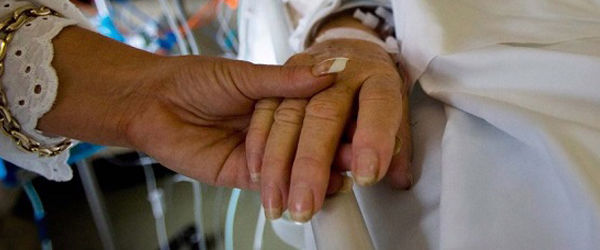Ten years ago this month, the Jesuits issued “Standing for the Unborn: A Statement of the Society of Jesus in the United States on Abortion.” This is a wonderful document with profound insights. Whether or not you have read it, or perhaps read it but don’t recall what it says, it is worthwhile highlighting a number of its insights.“In this statement,” the Jesuits wrote, “we wish to underscore the correctness of Catholic Church teaching regarding abortion, joining with many other people of conscience who are working to protect life in the womb, and who are seeking an end to abortion so as to restore our country’s respect for the core human value of the right to life.” The reasons for supporting human rights in utero expressed by the Jesuits were both theological and philosophical: “‘Human life, a gift of God, has to be respected from its beginning to its natural end’ (n. 57). The most fundamental building block of a just social order is respect for human life. Until men and women individually and collectively make a profound commitment to the value and dignity of all human life, we will never find the true peace, justice and reconciliation God desires for us.” Social justice is built on a foundation of respect for every single human being. Without respect for every single human being, including those who are dependent, immature and vulnerable in the womb, there can be no true peace and no true justice. Without this respect, there will not be an equality of all human beings but rather the domination, often by violence, of the powerful against the weak. It is inconsistent, therefore, to say that you support “social justice,” but also deny equal protection under the law to human beings who are waiting to be born.In “Standing for the Unborn,” the Jesuits underscored their support for Catholic social teaching: “The social teachings of the Catholic Church place the dignity of the human person at the center of all concerns for justice. Every human being, no matter how small or young or dependent on others, possesses infinite value.”In following the witness and teaching of Jesus, Christians are obligated to love and serve “the least of these” brothers or sisters, especially when they are young, dependent and vulnerable.This emphasis on the dignity of each and every human being excludes justifications of abortion that rest on a denial of the humanity or the dignity of the unborn. It also excludes rationalizations that appeal to Catholic social teaching on some issues, but then ignore this same social teaching about life issues.The mission statements of many Jesuit schools, including Loyola Marymount University where I work, speaks of the promotion of justice and the service of faith as fundamental elements of the identity of the school. Jesuit institutions claim a distinctive mission and identity, and the distinctiveness of the mission and identity of a Jesuit school arises from and reflects the promotion of justice and the service of faith. According to “Standing for the Unborn,” these central mission goals are tied to opposition to abortion: “The close linking of the service of faith and the promotion of justice has been a hallmark of Jesuit ministries from the very beginning. There can be no service of faith without the promotion of justice. Jesuits, therefore, must seek an end to the injustice of abortion.” These last words are significant: the injustice of abortion. Abortion is a justice issue because it involves taking what is due to another, not mere property, but another human being’s own life. Standing up in solidarity with every single human being is also a matter of faith. Revelation teaches us that every single human being is made in God’s own image and likeness and so is entitled to respect, care and social protection against injustice. In following the witness and teaching of Jesus, Christians are obligated to love and serve “the least of these” brothers or sisters, especially when they are young, dependent and vulnerable.The Jesuit statement further states, “It is our desire that Jesuits, along with their colleagues, will continue to offer a consistent message of respect for life, especially for unborn children. All of God’s daughters and sons, particularly the most vulnerable and those yet to be born, must be treated with respect and protected by the laws of our nation.” This is important insofar as this call to promote and protect human beings prior to birth is not just a matter for Jesuits alone, but includes their colleagues in mission at Jesuit institutions. It would not be consistent for an institution that claims the name Jesuit to fail to uphold in a clear, convincing and public way the basic equality of all human beings, before birth and after birth. Institutions calling themselves “Jesuit” have committed themselves to a high and noble calling indeed. Dr. Christopher Kaczor is Acting Chair and Professor of Philosophy at Loyola Marymount University in Los Angeles. His books include “The Ethics of Abortion”(Routledge, 2011) and “The Seven Big Myths About the Catholic Church: Distinguishing Fact from Fiction about Catholicism” (Ignatius Press, 2012).{gallery width=100 height=100}gallery/2013/0308/kaczor/{/gallery}

